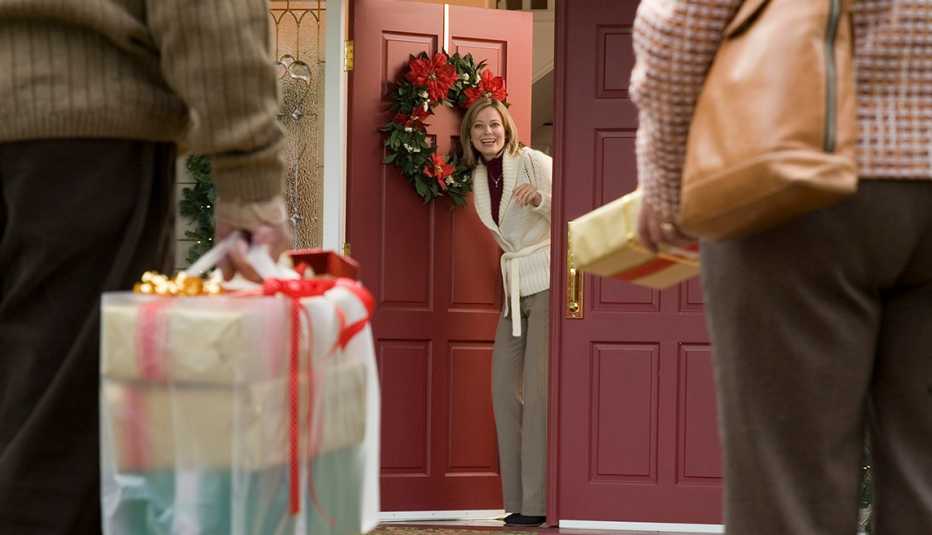AARP Hearing Center
Hosting for the holidays can be a marathon sport. There’s planning the meals, buying the groceries, cleaning the house, cooking the food. It’s a lot of work, especially for older adults who have been at the holiday helm for two — sometimes three — generations.
When is it time to call it quits and let the younger generation take over?
That’s a difficult question for all involved. It can be difficult to give up the role of host after so many years; on the other side, it can be hard to take over that role, especially after a lifetime of baking, decorating, game-playing and gift-giving traditions.
“It’s a very emotional topic,” says Andrew G. Celli Jr., a 57-year-old attorney in Manhattan.
The traditions at his mother’s house — the home where he grew up in Rochester, New York — have “a rhythm and a regularity that makes it incredibly special and specific to her and the way she does things.”
But their family is large. Celli and his two siblings each are married with multiple children, some of whom have significant others, which means gatherings draw nearly 20 people. It’s a lot of work for Dolores Celli, who lives alone and is approaching 90, to make her usual lasagna; prime rib, or chicken with lemon, garlic and rosemary; pizzelles; and the apple pie recipe her grandmother always used in Italy.
“It means taking the house apart and putting extra tables out, but I enjoy every moment of it,” she says, adding that she also provides breakfast for guests in the mornings. “Fortunately, I’m healthy enough to do it. Every year is a blessing as far as I'm concerned, even though I’m sure one of these days one of the kids is going to say, ‘No more.’”
While Andrew Celli says neither he nor his siblings have put their foot down once and for all just yet, he will be hosting Christmas at his home this year.
His mother “is incredibly strong and somewhat stubborn, but at the end of the holiday weekend, she is pretty tired,” he says. “We want her to enjoy the traditions that we can re-create at my house, without her having to do all the work.”









































































